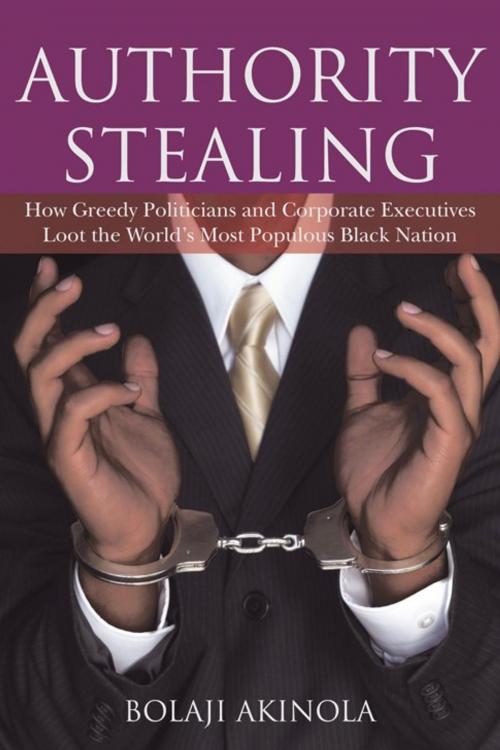Authority Stealing
How Greedy Politicians and Corporate Executives Loot the World’S Most Populous Black Nation
Nonfiction, Social & Cultural Studies, True Crime| Author: | BOLAJI AKINOLA | ISBN: | 9781477218914 |
| Publisher: | AuthorHouse UK | Publication: | July 25, 2012 |
| Imprint: | AuthorHouse UK | Language: | English |
| Author: | BOLAJI AKINOLA |
| ISBN: | 9781477218914 |
| Publisher: | AuthorHouse UK |
| Publication: | July 25, 2012 |
| Imprint: | AuthorHouse UK |
| Language: | English |
Corruption has eaten deep into the fabric of Nigeria, the worlds most populous black nation. Authority Stealing gives a graphic account of how public officers in Nigeria plundered the countrys resources impoverishing the lives of the very people they were elected or appointed to serve. Nigeria is considered one of the worlds most corrupt countries ranked 143 out of 182 countries in Transparency Internationals 2011 Corruption Perception Index. Nigeria exports and sells over two and half million barrels of crude oil per day earning huge revenue. Despite this, however, over 75 million people representing more than half of the population live in absolute poverty largely due to corruption and mismanagement of state resources by political leaders. The dysfunctional state of public utilities and infrastructure in the country is also a direct consequence of high level corruption. Over $380 billion had been stolen or wasted by Nigerian leaders since independence in 1960. Many politicians and corporate executives who amass wealth illegally become so powerful that they subvert the judicial system. Some of them were not so lucky though as chronicled in Authority Stealing.
Corruption has eaten deep into the fabric of Nigeria, the worlds most populous black nation. Authority Stealing gives a graphic account of how public officers in Nigeria plundered the countrys resources impoverishing the lives of the very people they were elected or appointed to serve. Nigeria is considered one of the worlds most corrupt countries ranked 143 out of 182 countries in Transparency Internationals 2011 Corruption Perception Index. Nigeria exports and sells over two and half million barrels of crude oil per day earning huge revenue. Despite this, however, over 75 million people representing more than half of the population live in absolute poverty largely due to corruption and mismanagement of state resources by political leaders. The dysfunctional state of public utilities and infrastructure in the country is also a direct consequence of high level corruption. Over $380 billion had been stolen or wasted by Nigerian leaders since independence in 1960. Many politicians and corporate executives who amass wealth illegally become so powerful that they subvert the judicial system. Some of them were not so lucky though as chronicled in Authority Stealing.















